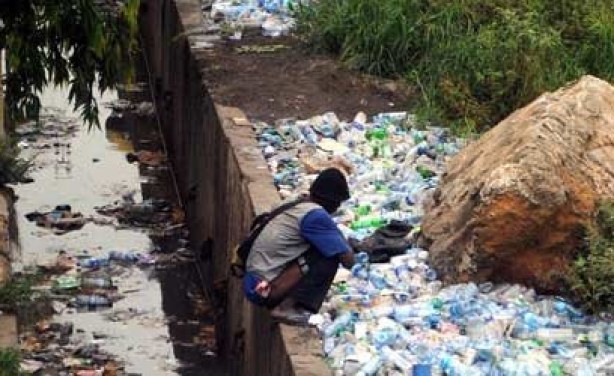At the recent Clean Nigeria, Use the Toilet Campaign Conference held in Awka, it was revealed that only 142 out of 744 local government areas (LGAs) in Nigeria have been certified open defecation free by the Federal Government. Mrs. Chizoma Opara, the National Coordinator of the conference, made this disclosure during a one-day sensitization program organized by the National Water Resources Building Network, Southeast Centre, in collaboration with Clean Nigeria, Use The Toilet, and Environmental Development.
Opara expressed her disappointment that in the 21st century, discussions around open defecation persist, attributing this ongoing issue to a “high lack of commitment” from stakeholders responsible for driving advocacy at the grassroots level. She emphasized the urgent need for improved sanitation across the country, citing poor water supply, hygiene issues, and environmental degradation as significant challenges facing Nigeria.
In Anambra State, three LGAs—Anambra East, Aguata, and Nnewi North—have achieved certification as open defecation free under the Water and Sanitation Hygiene (WASH) initiative. Opara called for further efforts to extend this success across all southeastern states. She urged key stakeholders, including religious organizations, traditional rulers, and community groups, to actively participate in combating open defecation in Nigeria and to develop a sense of patriotism toward this cause.
Opara outlined the program’s focus on advocacy for behavioral change and the cultivation of a culture of hygiene among Nigerians, emphasizing the need for comprehensive strategies to combat the issue. She announced plans for a new approach anchored on five pillars, including funding, environmental awareness campaigns, advocacy, and communication, and encouraged private sector involvement in driving change.
The conference also featured remarks from Mr. Ike-Obi Ejiofor, Chairman of the occasion and Managing Director of the Anambra State Water Resources Management Agency. Ejiofor stressed the event’s goal of fostering collaboration among the five southeastern states to promote clean and hygienic environments. He noted the progress made in Anambra, which was declared open defecation free in specific LGAs in 2019 and 2020.
Prof. Ike Chebelu, Vice-Chancellor of Nnamdi Azikiwe University, highlighted the importance of the conference theme in the university’s administration, pointing out that open defecation poses a health risk worldwide. He confirmed the institution’s commitment to maintaining cleanliness and ensuring access to water.
Mr. Mike Nwode, representing the Director-General of the National Water Resources Institute, underscored the timeliness of the campaign, linking it to the Federal Government’s efforts to achieve the Sustainable Development Goals (SDGs), particularly the target of ending open defecation by 2030. He revealed that Nigeria loses approximately N450 billion annually due to poor sanitation.
Prof. Emma Ezenwaji, Director of the National Water Resources Capacity Building Network (NWRCBNet) Southeast, urged Nigerian youths to form WASH associations at the community level to address these challenges collaboratively.
The conference also featured discussions on the role of young people in the Clean Nigeria Campaign, led by Mr. Uchenna Obiakor of Youth Wash Initiative Africa, who urged collective responsibility in tackling water and hygiene issues.
Traditional leaders, including Dr. Joel Egwuonwu, the Traditional Ruler of Umuawuku Community, called for government and philanthropic support to fund the Clean Nigeria, Use the Toilet Campaign and mitigate health risks associated with poor sanitation.
In his closing remarks, Anambra State House of Assembly member Mr. Golden Iloh praised the initiative, promising to advocate for laws addressing open defecation in the state. Additionally, the Anambra State Commissioner for Power and Water Resources, Mr. Julius Chukwuemeka, represented by Permanent Secretary Mr. Victor Ezekwo, reaffirmed the government’s commitment to environmental sustainability and ongoing water supply improvements throughout the state.









Leave feedback about this